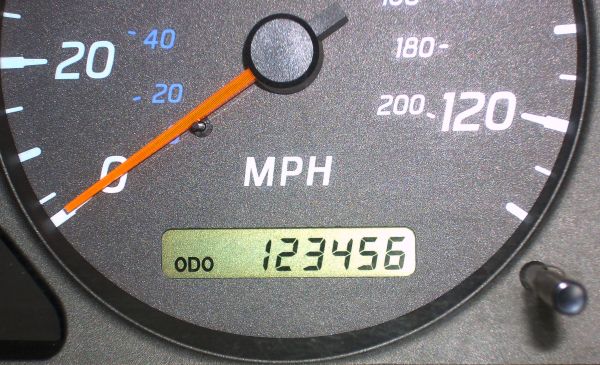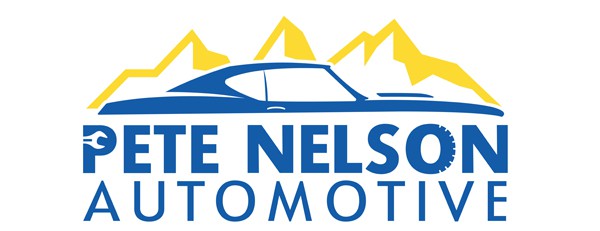 Arizona, with its blistering sun and arid landscapes, is more than a postcard-perfect destination—it’s a real test for high-mileage vehicles. In Sun City, where soaring temperatures and dusty roads are the norm, drivers need a proactive maintenance routine to keep their cars running strong for the long haul. At Pete Nelson Automotive, we specialize in helping high-mileage vehicles thrive in the harsh Arizona environment.
Arizona, with its blistering sun and arid landscapes, is more than a postcard-perfect destination—it’s a real test for high-mileage vehicles. In Sun City, where soaring temperatures and dusty roads are the norm, drivers need a proactive maintenance routine to keep their cars running strong for the long haul. At Pete Nelson Automotive, we specialize in helping high-mileage vehicles thrive in the harsh Arizona environment.
Routine maintenance is essential—not just to keep your car running smoothly, but to avoid costly breakdowns and extend its lifespan. From oil changes and tire checks to cooling system care, your vehicle requires specialized attention to endure Arizona’s extremes.
In this article, we’ll share key preventative maintenance tips tailored specifically for Arizona’s climate. Whether you’re commuting locally in Sun City or heading out across the desert, these strategies will help ensure your vehicle stays reliable. For expert high-mileage service and trusted care, visit Pete Nelson Automotive or call us at (623) 974-4723.
Importance of Regular Maintenance
Regular maintenance is crucial for high-mileage vehicles, especially in Arizona’s hot climate. Scheduled maintenance prevents costly repairs and keeps your car running smoothly mile after mile.
Key Maintenance Services:
- Oil Changes: Regularly change your oil filter to preserve engine health.
- Fluid Checks: Monitor power steering, brake, and transmission fluid levels.
- Inspections: Examine drive and serpentine belts, suspension components, and the timing belt.
Arizona’s dry air often requires unique upkeep. Regularly check and replace the air filter, cabin air filter, and engine air filter to maintain peak performance. Spark plug replacement, specifically copper spark plugs, ensures proper ignition and fuel efficiency.
Consider this maintenance schedule for high-mileage vehicles:
|
Service |
Frequency |
|---|---|
|
Oil Change |
Every 3,000-5,000 miles |
|
Timing Belt |
Every 60,000-100,000 miles |
|
Spark Plugs |
Every 30,000 miles |
|
Air Filter Replacement |
Yearly |
Routine maintenance helps avoid expensive repairs, improving gas mileage and extending vehicle life. Implement these preventative maintenance services to keep your vehicle performing its best in Arizona’s challenging conditions.
Tailored Preventive Measures for High-Mileage Cars
To keep high-mileage vehicles in Arizona running smoothly, regular maintenance is crucial. High temperatures and dusty conditions can be tough on cars. Here are some tailored preventive measures:
- Fluids Check: Inspect oil, brake fluid, transmission fluid, power steering fluid, and coolant regularly. These fluids prevent wear and tear on critical parts.
- Belt and Hose Inspections: Pay attention to the timing belt, serpentine belt, and drive belts. Replace them if they show signs of wear.
- Filters Update: Ensure the engine air filter, cabin air filter, and fuel filter are clean. They improve air quality and fuel efficiency.
- Spark Plugs: Regularly check and replace copper spark plugs. This can prevent engine misfires and improve gas mileage.
- Braking System: Brake fluid and suspension components should be assessed to avoid expensive repairs.
- Scheduled Checks and Routine Maintenance: Stick to your vehicle’s maintenance schedule for peak performance mile after mile.
|
Maintenance Task |
Check/Replace |
|---|---|
|
Engine and Cabin Filters |
Every 15,000 miles |
|
Spark Plugs |
Every 30,000 miles |
|
Belts and Hoses |
Check 60,000 miles |
|
Fluids |
Every oil change |
Following these maintenance tips can help prevent issues, ensuring your vehicle remains reliable, even in Arizona’s challenging conditions.
Oil Changes: Frequency and Benefits
Oil changes are vital for keeping your high-mileage vehicle in top condition, especially in Arizona’s harsh climate. Regular maintenance, like timely oil changes, helps your engine run smoothly and extends its life.
How Often to Change Your Oil?
|
Vehicle Age |
Suggestion |
|---|---|
|
Newer Cars |
Every 5,000-7,500 miles |
|
Older Cars |
Every 3,000-5,000 miles |
Frequent oil changes ensure your engine stays lubricated and cool, preventing expensive repairs. Using high-quality oil and changing it regularly can improve your vehicle’s gas mileage and fuel efficiency.
Benefits of Regular Oil Changes
- Engine Health: Keeps engine parts moving smoothly.
- Improved Performance: Fresh oil aids in better fuel efficiency.
- Cooling: Helps dissipate engine heat.
In addition to routine oil changes, consider the whole maintenance schedule. Check other fluids like brake fluid, power steering fluid, and transmission fluid. Replace air and oil filters to ensure the engine breathes cleanly and performs well.
Staying on top of routine maintenance can keep your high-mileage vehicle running efficiently mile after mile.
Tire Rotations and Wheel Alignments
Maintaining your vehicle’s tires and wheels is crucial for safety and performance. Regular tire rotations and wheel alignments are key aspects of vehicle maintenance.
Tire Rotations:
- Should be done every 6,000 to 8,000 miles.
- Helps extend tire life by promoting even wear.
- Improves gas mileage and reduces the risk of costly tire replacements.
Wheel Alignments:
- Essential if you notice the car pulling to one side.
- Should be checked whenever you feel vibration or uneven tire wear.
- Ensures the suspension components work efficiently, resulting in better handling.
Key Benefits:
- Enhanced fuel efficiency.
- Increased safety.
- Avoids expensive repairs related to suspension and steering.
By sticking to these routine maintenance tasks, you ensure your vehicle performs mile after mile. Plus, maintaining proper tire and wheel health is part of regular maintenance services that protect your investment. Here’s a simple maintenance checklist:
- Rotate tires every oil change.
- Check alignment annually.
- Inspect tires for wear and air pressure monthly.
Keep your vehicle running smoothly and safely on Arizona roads by incorporating these preventative maintenance tips into your schedule.
Mileage-Specific Maintenance Benchmarks
As your vehicle clocks more miles, it becomes crucial to keep up with its maintenance schedule. Regular checks not only enhance vehicle performance but also extend its lifespan. For high-mileage vehicles in Arizona, adopting a maintenance routine that aligns with specific mileage points is key. Each checkpoint allows you to handle minor issues before they become major, thereby saving costs in the long run. Knowing what to look for at each mile mark helps create a predictable and efficient schedule. Consider focusing on the essentials such as the timing belt and air filters as part of your preventative maintenance services.
Spark Plug Replacement
Spark plugs play a vital role in your vehicle’s engine performance. They ignite the fuel-air mixture, ensuring the engine runs smoothly. As you rack up the miles, these components wear out and need attention. Typically, spark plugs should be changed every 30,000 to 100,000 miles, depending on the type. If your spark plugs are copper, you may need spark plug replacement more often. By replacing them at the right time, you ensure optimal gas mileage and engine performance. This small maintenance task can prevent expensive repairs and keep your vehicle running efficiently mile after mile.
Fluid Changes at 100,000 Miles
Reaching 100,000 miles is a significant milestone for any vehicle. At this point, a comprehensive fluid change can make a huge difference in its performance. Regular maintenance should include transmission fluid and brake fluid changes. Also check power steering fluid and engine coolant. Refreshing these fluids ensures that all parts continue working smoothly. Neglecting them can lead to decreased performance and potential damage. Along with these, consider updating your fuel filter. Regular fluid changes are essential in maintaining fuel efficiency and protecting your vehicle from wear and tear, allowing it to run smoothly in Arizona’s varying climate conditions.
Consequences of Neglecting Maintenance
Neglecting maintenance can lead to expensive repairs and reduced fuel efficiency. High-mileage vehicles require extra care, especially in Arizona’s harsh climate. If ignored, minor issues can become major problems.
- Engine Wear and Tear: Without regular oil changes, the engine can suffer damage, shortening its lifespan.
- Poor Fuel Efficiency: A clogged air filter or worn-out spark plugs can reduce your car’s miles per gallon.
- Brake System Failure: Skipping brake fluid checks may compromise your car’s stopping power.
- Transmission Trouble: Dirty transmission fluid can cause shifting issues and overheating.
- Steering and Suspension Issues: Ignoring power steering fluid and suspension components can affect handling and comfort.
- Overheating: Not replacing the water pump or timely thermostat checks can lead to overheating.
Maintenance Checklist
|
Maintenance Task |
Regular Check Interval |
|---|---|
|
Oil Change |
Every 3,000 – 5,000 miles |
|
Air Filter |
Every 12,000 miles |
|
Spark Plugs |
Every 30,000 – 50,000 miles |
|
Brake Fluid |
Every 20,000 miles |
|
Transmission Fluid |
Every 30,000 – 60,000 miles |
|
Power Steering Fluid |
Every 50,000 miles |
|
Water Pump |
Every 60,000 – 90,000 miles |
Stick to a maintenance schedule to enjoy mile after mile of trouble-free driving. Regular maintenance prevents costly repairs and ensures safe, efficient performance in Arizona’s challenging conditions.
Benefits of Consistent Tune-Ups
Regular tune-ups are vital for keeping your high-mileage vehicle running smoothly in Arizona’s challenging climate. Consistent maintenance can prevent expensive repairs and extend the life of your car.
Major Benefits of Tune-Ups:
- Improved Fuel Efficiency: Regular tune-ups ensure your engine runs efficiently, improving gas mileage and saving money at the pump.
- Enhanced Performance: Routine maintenance like replacing spark plugs and checking the timing belt ensures your car’s performance remains crisp, mile after mile.
- Longer Vehicle Lifespan: Scheduled maintenance, such as changing the oil filter and air filter, protects your engine and other parts, prolonging your vehicle’s life.
- Increased Safety: Inspecting brake fluid and other critical components like the serpentine belt and suspension components keeps your car safe on the road.
- Cost Savings: Consistent tune-ups help catch small issues before they become costly repairs.
|
Maintenance Task |
Frequency |
|---|---|
|
Spark Plugs |
Every 30,000 miles |
|
Timing Belt |
Every 60,000 miles |
|
Oil Change |
Every 5,000 miles |
|
Air Filter |
Every 20,000 miles |
Regular tune-ups offer peace of mind. They ensure your vehicle remains reliable and efficient, even with high mileage.
Signs Indicating Necessary Repairs
Understanding when your vehicle requires repairs is crucial in maintaining its performance and safety. High-mileage vehicles in Arizona face unique challenges due to extreme weather conditions. These can accelerate wear and tear on vital components. Identifying early signs of trouble can save you from expensive repairs and keep your car running smoothly. Pay attention to changes in your vehicle’s behavior, such as unusual noises or vibrations. These could be early indicators of problems that need addressing. Regularly inspecting your vehicle and being aware of common issues can help you catch problems before they worsen.
Recognizing a Worn-Out Timing Belt
The timing belt in your vehicle ensures the engine’s valves open at the right times. A worn-out timing belt can lead to severe engine damage if not replaced promptly. One sign of a failing timing belt is a ticking noise coming from the engine. This noise is often due to the belt’s teeth wearing out or the belt itself becoming loose. Another indicator is if your engine misfires or fails to start altogether. A timing belt failure can cause serious issues, so it’s important to address the problem quickly. Regular maintenance and timely replacement of the timing belt can prevent these issues and protect your engine.
Identifying Transmission Issues
Transmission problems in high-mileage vehicles can cause a range of issues. Identifying these issues early can prevent further damage and save you from costly repairs. One common sign of transmission trouble is difficulty shifting gears. If you notice a delay or jerk when changing gears, it’s time to inspect the transmission. Another sign is unusual noises, such as whining or clunking, coming from your vehicle when it’s in gear. This can indicate worn-out transmission components needing attention. Regularly checking and replacing transmission fluid can help maintain smooth gear shifts and prolong your transmission’s life. Ensuring preventative maintenance services for the transmission can keep your car running efficiently.
Impact of Driving Habits on Maintenance
Driving habits greatly affect your vehicle’s maintenance needs, especially in high-mileage vehicles in Arizona. By understanding how certain behaviors impact your car, you can avoid expensive repairs and ensure your vehicle runs smoothly mile after mile. Consistent, gentle driving habits can prolong the life of your car’s components such as brake fluid, power steering fluid, and the timing belt. In the following sections, we’ll explore how rapid acceleration and riding the brakes can impact your vehicle’s health.
Effects of Rapid Acceleration
Rapid acceleration may seem thrilling, but it has hidden costs. When you accelerate quickly, you put extra stress on your engine, transmission, and suspension components. This stress can lead to faster wear and tear, meaning you’ll need more frequent maintenance services.
Each time you press hard on the gas, the engine uses more fuel. This reduces fuel efficiency and could result in increased gas mileage over time. A sudden burst of speed can also impact the timing belt and drive belts, causing additional wear. Thus, avoiding quick starts is key to maintaining your vehicle’s health in the long run.
Consequences of Riding the Brakes
Riding the brakes is a common habit that can lead to costly repairs. Constant braking heats up the brake fluid, causing it to break down faster. This can reduce the effectiveness of your brakes and increase the risk of failure.
Additionally, riding the brakes can wear down brake pads and rotors prematurely, leading to more frequent replacements. Over time, this habit can strain the suspension components. So, to avoid these issues, it’s best to practice gradual braking and maintain a comfortable distance from other vehicles. This approach helps keep your vehicle’s brake system and overall maintenance in check.
Engine and Battery Care in Arizona’s Climate
Maintaining your vehicle’s engine and battery is crucial, especially in Arizona’s hot climate. Here are some tips to keep your car running smoothly mile after mile:
- Regular Oil Changes: Arizona’s heat can break down engine oil faster. Change it every 3,000-5,000 miles to protect your engine.
- Check Coolant Levels: High temperatures make cooling systems work hard. Ensure your coolant is topped off and the system is flushed regularly to avoid expensive repairs.
- Battery Maintenance: Extreme heat can shorten battery life. Check the battery for corrosion and ensure it’s securely mounted. Test it regularly and replace it if it’s more than three years old.
- Inspect Drive Belts: Look for wear and tear on serpentine and timing belts. These should be in top condition to avoid breakdowns.
- Monitor Air Filters: Dust and debris are common in Arizona. Change your engine and cabin air filters every 12,000-15,000 miles for better performance and air quality.
Maintenance Schedule
|
Task |
Frequency |
|---|---|
|
Oil Change |
Every 3,000-5,000 miles |
|
Coolant Check |
Regularly |
|
Battery Check |
Every 6 months |
|
Drive Belt Inspection |
Every 10,000 miles |
|
Air Filter Change |
Every 12,000-15,000 miles |
These steps help extend your vehicle’s lifespan and maintain fuel efficiency. Stay proactive with routine maintenance to enjoy worry-free driving in Arizona’s climate.
Role of Certified Mechanics in Vehicle Reliability
Certified mechanics at Pete Nelson Automotive play a crucial role in ensuring vehicle reliability. With their expertise, they identify and fix issues that could lead to expensive repairs later. Here are some key reasons why a certified mechanic is essential:
- Expert Knowledge: Certified mechanics at Pete Nelson Automotive have extensive training. They understand complex vehicle systems, such as timing belts and suspension components.
- Regular Maintenance: They perform essential maintenance tasks like oil changes, brake fluid checks, and power steering fluid top-ups. This regular maintenance ensures vehicles run smoothly mile after mile.
- Preventative Maintenance Services: A certified mechanic at Pete Nelson Automotive provides preventative maintenance, including checking air filters, transmission fluid, and spark plugs. This helps avoid unexpected breakdowns.
- Scheduled Maintenance: They follow a strict maintenance schedule, ensuring every component is inspected and serviced at the right time.
Here is a typical maintenance checklist:
|
Task |
Frequency |
|---|---|
|
Engine Oil Change |
Every 3,000-5,000 miles |
|
Air Filter Replacement |
Every 15,000-30,000 miles |
|
Brake Fluid Check |
Every Year |
|
Timing Belt Inspection |
Every 60,000-100,000 miles |
|
Spark Plug Replacement |
Every 30,000-100,000 miles |
By relying on Pete Nelson Automotive, car owners can enhance their vehicle’s reliability and fuel efficiency.
Practical Advice for Desert Driving Conditions
Driving in Arizona’s desert conditions can be tough on high-mileage vehicles. Here are some practical maintenance tips to keep your car running mile after mile.
- Routine Maintenance: A regular maintenance schedule helps prevent expensive repairs. This includes checking spark plugs, engine oil, and transmission fluid.
- Fluid Levels: Extreme heat can cause fluids to evaporate faster. Regularly check brake fluid, power steering fluid, and transmission fluid.
- Air and Fuel Filters: Clean air filters and replace them if needed. A clogged fuel filter can reduce fuel efficiency and engine performance.
- Drive Belts: Inspect serpentine and timing belts for wear. They are crucial for keeping the engine’s timing right.
- Cooling System: Ensure your radiator and water pump are in good condition. These are essential for preventing the engine from overheating.
- Suspension Components: Check shocks and struts regularly, as rough desert roads can cause damage.
Staying on top of preventative maintenance is the key to keeping your high-mileage vehicle dependable on Arizona’s demanding roads. If you’re in Sun City and want expert care tailored to our desert conditions, Pete Nelson Automotive is here to help. Call us at (623) 974-4723 or stop by for trusted, local service that keeps your car running stronger for longer.


